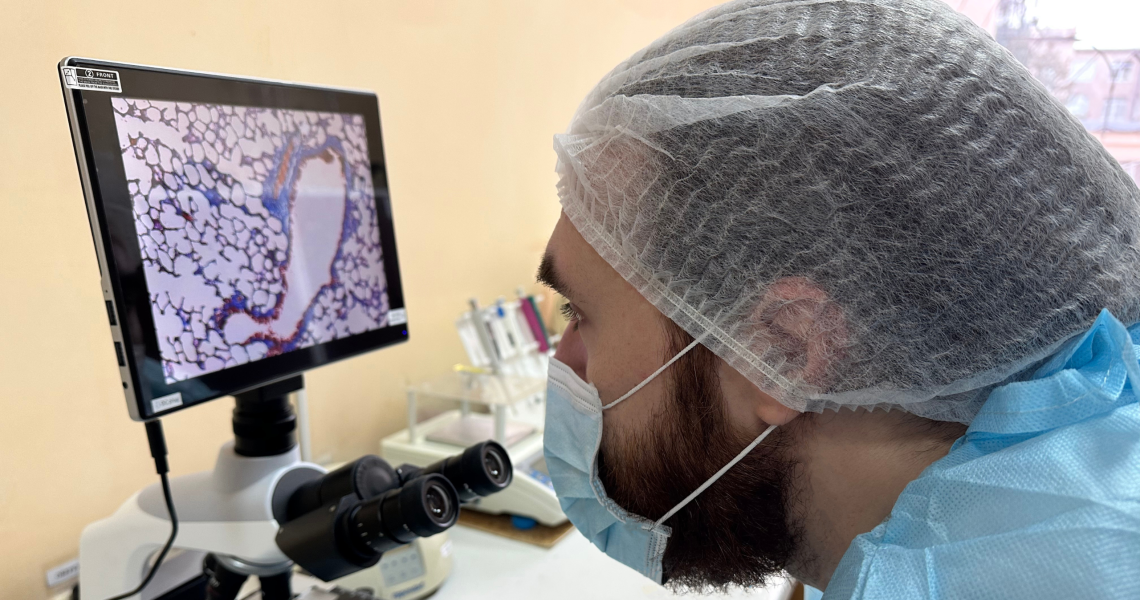На базі науково-дослідного інституту генетичних та імунологічних основ розвитку патології та фармакогенетики Полтавського державного медичного університету проводили пошук нових можливостей профілактики та лікування легеневих захворювань у рамках науково-дослідної роботи Міністерства охорони здоров’я України: «Розробка методики лікування та профілактики розвитку фіброзу легень шляхом активації PPAR-gamma рецепторів».
Проведені експериментальні дослідження довели, що агоніст PPAR-gamma рецепторів зменшує симптоми легеневого фіброзу та відновлює структуру легень мишей за рахунок зменшення кількості колагену, що відкладається в легеневій тканині.
Виконуються дослідження впливу на легені одного з найбільш розповсюджених забрудників навколишнього середовища – мікрочастинок пластику. Вдалося відтворити експериментальну модель, яка демонструє, як мікропластик, потрапляючи в легені, викликає імунну відповідь, взаємодіє з макрофагами, імунними клітинами, які першими поспішають до чужорідних частинок і відіграють вирішальну роль у запальній відповіді та регенерації тканин.
За результатами наукових досліджень у 2024 році надруковано 5 статей у науково-практичних журналах, з них 3 – у зарубіжних виданнях.
Summary of research conducted by scientists of Poltava State Medical University on new approaches to the prevention and treatment of lung diseases as part of the Ministry of Health of Ukraine's research project
At the Research Institute of Genetic and Immunological Foundations of Pathology Development and Pharmacogenetics of Poltava State Medical University, scientists conducted a study exploring new possibilities for preventing and treating lung diseases. This work was part of the Ministry of Health of Ukraine's research project: "Development of Methodology for the Treatment and Prevention of Lung Fibrosis by Activating PPAR-gamma Receptors."
Experimental studies demonstrated that a PPAR-gamma receptor agonist reduces symptoms of pulmonary fibrosis and restores lung structure in mice by decreasing the amount of collagen deposited in lung tissue.
Additionally, research is being carried out to study the effects of one of the most common environmental pollutants—microplastic particles—on the lungs. An experimental model has been developed to show how microplastics, entering the lungs, trigger an immune response and interact with macrophages, the immune cells that are the first to respond to foreign particles. These macrophages play a critical role in the inflammatory response and tissue regeneration.
As a result of this scientific research, five articles were published in 2024 in scientific and practical journals, three of which appeared in international publications.






